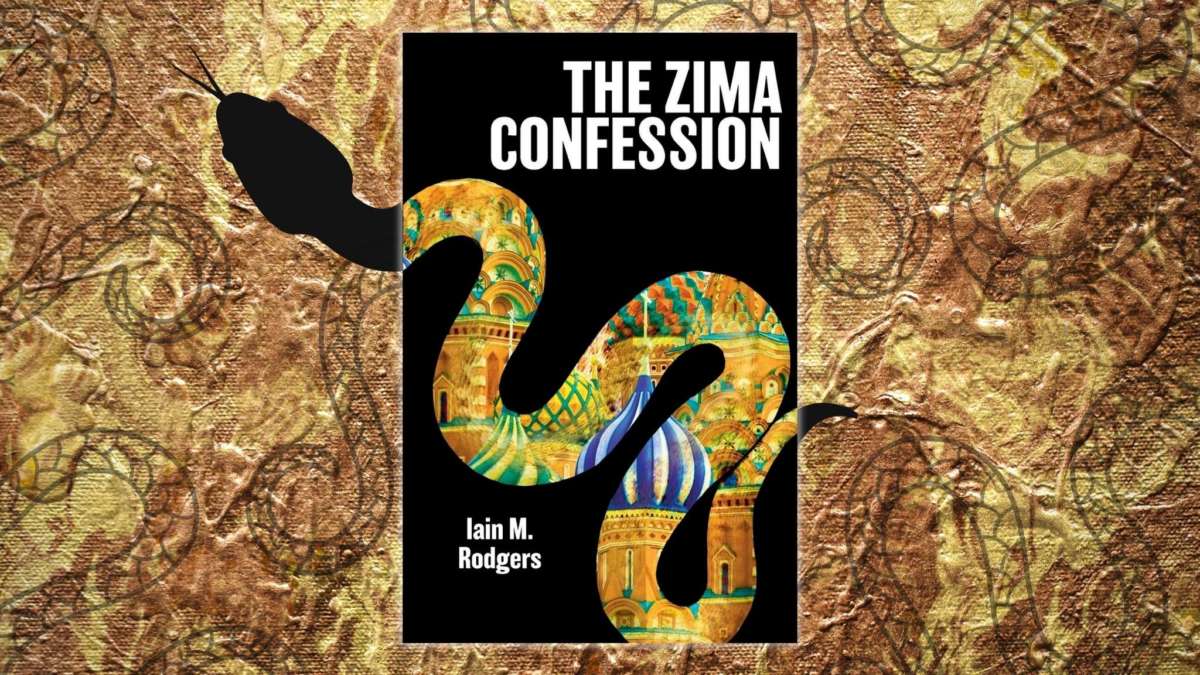If you were a college student from the mid 1960s through the 1970s, you might know a bit about youthful passion and idealism. If you weren’t the person pushing radical ideas to fix a world that seemed terribly broken, perhaps you had friends who were true believers.
Most young adults outgrew the certainty that fervor provided to discover a world that, surprise, wasn’t black and white but had shades of gray. But what about those who didn’t see things that way? What damage could a young radical cause by continuing to embrace the notion that things are so bad, so corrupt and so dysfunctional that desired ends justify brutal means? And what if that young radical is dedicated, brilliant and has well-connected friends with global capabilities?
Such is the driving force behind The Zima Confession, the debut novel of Iain M. Rodgers. It’s a good premise for a thriller, and Rodgers, a native of Glasgow, Scotland, does an interesting job of putting his youthful, fervent radical, Richard Slater, into a web of intrigue and danger that becomes a wild journey of self-awareness.
We first meet Slater in Glasgow in 1977 when he and his friends, like college students everywhere, love to sit around, philosophize and argue about politics. This group ultimately embraces Marxist ideas, particularly the socialist beliefs of Russian revolutionary Leon Trotsky. They’re obsessed by the evils of capitalism and the arrogance of those with wealth and power.
The group members hatch a long-term, long-shot plan, and they’re willing to quietly toil for decades to bring it to fruition. Slater makes a commitment to build his career to gain a role of major responsibility, positioning himself to unleash enough sabotage against the financial system to start a revolution. Even after the Soviet Union collapses and morphs into the faux democracy of Russia, the group sustains its fervor for the socialistic dream world that Trotskyites imagined. The code name of their plot is Zima.
However, by 2013 in London, Slater wonders if anyone is still around to activate Zima. By now, he’s an information technology whiz at a financial software company, and he has finally landed in a spot to put the plan into motion. He sends a signal that he’s ready, and he actually receives a response.
As you might expect, things go awry, particularly as Slater discovers another reality often lost on fervent youth — the law of unintended consequences. You can’t predict all the ripple effects of your actions. He starts questioning if he should remain a part of things, but he’s in so deep; he can’t get out.
His doubts particularly accelerate after the suicide of one of his colleagues, and he begins to wonder which side his sort-of girlfriend, an attractive escort, is really on. Has the group been infiltrated, perhaps by British intelligence? He gets his banking employer to send him to Russia on a project only to slide deeper into a labyrinth of lies, deceit and mind control experiments as the Zima plan, which could cripple the world’s banking system, moves closer to activation.
Based on his biography, Rodgers should know quite a bit about the settings and worlds revealed in his debut novel. He says he worked many years in information technology and taught English as a foreign language in Moscow while writing the book.
The Russian settings are particularly effective, as is Rodgers’ skill at creating an aura of mystery. He keeps you wondering until the end about truth versus deception and how high a price Richard Slater will pay for letting his youthful fervor become a lifelong obsession.




